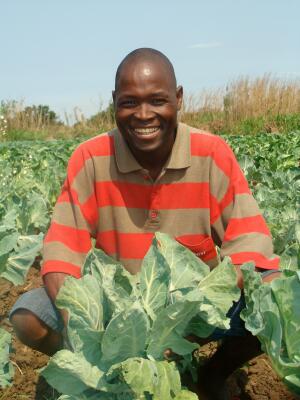According to the United Nations, a worldwide food crisis is looming in 2013. In 2012 the U.S. corn harvest was down 15% and nearly 40% of what was left went to making fuel for vehicles. The result was less food than usual on the international market and higher prices. The UN also predicts wheat production this year is expected to be 5.2% below 2011, with yields of most other crops also falling. Wheat and corn prices are now close to those that sparked riots in 25 countries in 2008.
For the poor, who spend a large proportion of their income on food, this is a dire threat. According to the UN's Food and Agriculture Organization, 870 million people are already malnourished.
Lester Brown, an environmental analyst and president of the Earth Policy Institute in Washington, DC said, "This situation is not going to go away. New trends such as falling water tables, plateauing grain yields and rising temperatures along with soil erosion and climate change to make it difficult, if not impossible, to expand production fast enough."
Every 1C (1.8 degrees F) above the ideal temperature in a growing season is equal to approximately a 10% decline in grain yield. So if the world does not address the climate issue, the Earth's temperature this century could easily rise by 6 degrees C (10.8 degrees F), and devastate food supplies.
According to Brown, "Armed aggression is no longer the principal threat to our future. The overriding threats to this century are climate change, population growth, spreading water shortages and rising food prices."
 Planet Aid supports sustainable agriculture in developing countries through its Farmers' Clubs program. The aim is to empower farmers to cope with the impacts of climate change by creating a more diverse and sustainable source of food. Read more about Farmers' Clubs and their impact.
Planet Aid supports sustainable agriculture in developing countries through its Farmers' Clubs program. The aim is to empower farmers to cope with the impacts of climate change by creating a more diverse and sustainable source of food. Read more about Farmers' Clubs and their impact.
